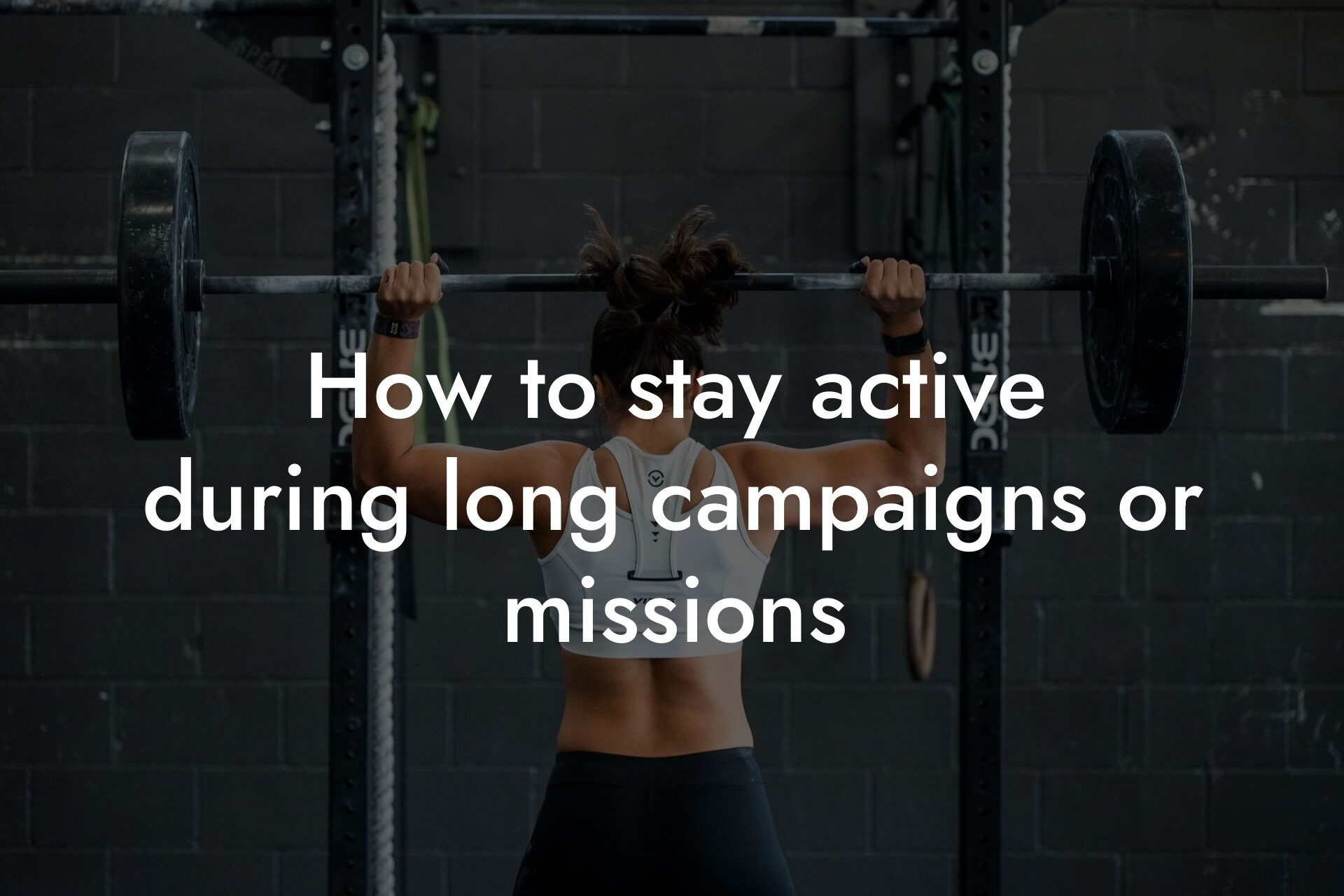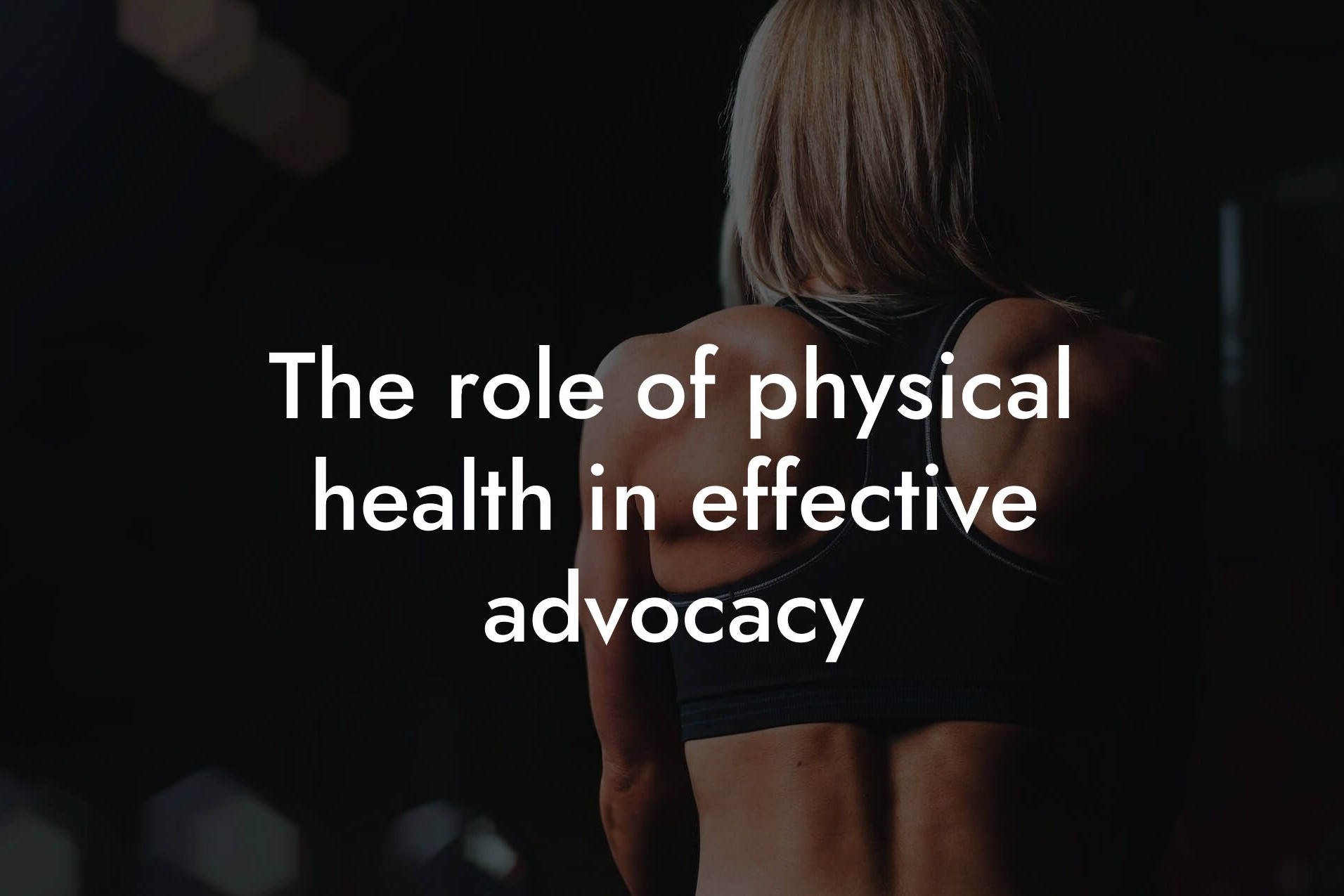As a nonprofit leader, you wear many hats. You're a visionary, a strategist, a manager, and a motivator. But beneath the surface, your physical health plays a critical role in your ability to lead effectively. In this article, we'll explore the impact of physical health on nonprofit leadership, and why prioritizing your well-being is essential for success.
Table of Contents
- The High-Stakes Environment of Nonprofit Leadership
- The Consequences of Poor Physical Health on Leadership
- The Importance of Energy and Resilience in Nonprofit Leadership
- The Role of Body Composition in Nonprofit Leadership
- The Benefits of Regular Exercise for Nonprofit Leaders
- Nutrition and Nonprofit Leadership: Fueling Your Body for Success
- DEXA Scanning: A Game-Changer for Nonprofit Leaders
- Conclusion: Prioritizing Physical Health for Nonprofit Success
- Frequently Asked Questions
The High-Stakes Environment of Nonprofit Leadership
Nonprofit leaders operate in a high-stakes environment, where the margin between success and failure is often razor-thin. The pressure to secure funding, manage teams, and drive impact can be overwhelming, leading to chronic stress, burnout, and exhaustion. This toxic cocktail can have devastating consequences for your physical health, from compromised immune systems to cardiovascular disease.
The Consequences of Poor Physical Health on Leadership
When you're not physically well, your leadership suffers. Research shows that poor physical health can impair cognitive function, decision-making, and emotional regulation. You may struggle to:
• Focus and concentrate, leading to mistakes and missed opportunities
• Manage stress, resulting in irritability, mood swings, and decreased empathy
• Build strong relationships, as fatigue and low energy undermine your ability to connect with others
• Make informed decisions, as clouded judgment and decreased creativity hold you back
The Importance of Energy and Resilience in Nonprofit Leadership
Energy and resilience are the lifeblood of effective nonprofit leadership. When you're physically fit, you're better equipped to handle the demands of the job. You can:
• Think more clearly and make better decisions
• Respond to challenges with confidence and poise
• Build strong, meaningful relationships with stakeholders and team members
• Drive innovation and creativity, propelling your organization forward
The Role of Body Composition in Nonprofit Leadership
Body composition plays a critical role in your overall health and well-being. Excess body fat, particularly around the midsection, is linked to increased risk of chronic diseases, such as diabetes, heart disease, and certain cancers. As a nonprofit leader, maintaining a healthy body composition is essential for:
• Boosting energy levels and reducing fatigue
• Improving cognitive function and mental clarity
• Enhancing overall physical health and reducing the risk of chronic disease
The Benefits of Regular Exercise for Nonprofit Leaders
Regular exercise is a powerful tool for nonprofit leaders. It can:
• Improve mood and reduce stress and anxiety
• Enhance cognitive function and boost creativity
• Increase energy levels and reduce fatigue
• Support better sleep and overall physical health
Nutrition and Nonprofit Leadership: Fueling Your Body for Success
What you eat matters. A balanced diet provides the fuel your body needs to perform at its best. As a nonprofit leader, focusing on whole, nutrient-dense foods can:
• Improve energy levels and reduce fatigue
• Support cognitive function and mental clarity
• Enhance overall physical health and reduce the risk of chronic disease
• Boost your mood and reduce stress and anxiety
DEXA Scanning: A Game-Changer for Nonprofit Leaders
At Tano Performance Group, we understand the importance of physical health in nonprofit leadership. That's why we offer comprehensive DEXA scanning, providing a detailed picture of your body composition, bone density, and overall health. With this information, you can:
• Identify areas for improvement and develop targeted strategies for success
• Track progress and adjust your approach as needed
• Make informed decisions about your health and well-being
Conclusion: Prioritizing Physical Health for Nonprofit Success
As a nonprofit leader, your physical health is not a luxury – it's a necessity. By prioritizing your well-being, you'll become a more effective, resilient, and inspiring leader. Remember, your body is your most valuable asset. Invest in it, and you'll reap the rewards for years to come.
Frequently Asked Questions
What is the connection between physical health and nonprofit leadership?
Research has shown that there is a significant link between a nonprofit leader's physical health and their ability to lead effectively. Physical health can impact energy levels, cognitive function, and overall well-being, all of which are essential for making informed decisions and guiding an organization towards its mission.
How does poor physical health affect nonprofit leadership?
Poor physical health can lead to fatigue, decreased productivity, and impaired judgment, ultimately affecting a nonprofit leader's ability to make strategic decisions and drive their organization forward. Additionally, poor physical health can also impact a leader's ability to build and maintain relationships with stakeholders, donors, and team members.
What are some common physical health challenges faced by nonprofit leaders?
Nonprofit leaders often face unique physical health challenges, including long work hours, high levels of stress, and limited time for self-care. This can lead to issues such as obesity, diabetes, hypertension, and cardiovascular disease. Furthermore, the emotional demands of the job can also take a toll on mental health, leading to anxiety, depression, and burnout.
How can nonprofit leaders prioritize their physical health?
Nonprofit leaders can prioritize their physical health by making small changes to their daily routine, such as taking regular breaks to stretch, scheduling time for exercise, and preparing healthy meals. They can also prioritize sleep, aim for 7-8 hours of restful sleep each night, and engage in stress-reducing activities such as meditation or yoga.
What role does nutrition play in nonprofit leadership?
Nutrition plays a critical role in maintaining physical health, and for nonprofit leaders, a balanced diet can help improve energy levels, cognitive function, and overall well-being. A diet rich in whole foods, fruits, vegetables, and lean proteins can help support immune function, reduce inflammation, and promote healthy weight management.
How can nonprofit leaders stay active despite their busy schedules?
Nonprofit leaders can stay active despite their busy schedules by finding creative ways to incorporate physical activity into their daily routine. This can include taking the stairs instead of the elevator, going for a walk during lunch breaks, or scheduling exercise into their daily calendar. Even small amounts of physical activity can have a significant impact on overall health and well-being.
What is the impact of physical health on nonprofit leadership decision-making?
Research has shown that physical health can have a significant impact on cognitive function, including decision-making. When nonprofit leaders are physically healthy, they are better equipped to make informed, strategic decisions that drive their organization forward. Conversely, poor physical health can impair judgment, leading to decisions that may not be in the best interest of the organization.
How can nonprofit leaders prioritize self-care?
Nonprofit leaders can prioritize self-care by scheduling time for activities that bring them joy and relaxation, such as reading, spending time with loved ones, or engaging in hobbies. They can also prioritize activities that promote physical health, such as exercise, meditation, or yoga. By prioritizing self-care, nonprofit leaders can reduce stress, improve their overall well-being, and increase their ability to lead effectively.
What are some common barriers to physical health for nonprofit leaders?
Common barriers to physical health for nonprofit leaders include lack of time, limited access to healthy food options, and high levels of stress. Additionally, the emotional demands of the job can also make it difficult for nonprofit leaders to prioritize their physical health. By recognizing these barriers, nonprofit leaders can develop strategies to overcome them and prioritize their physical health.
How can nonprofit organizations support their leaders' physical health?
Nonprofit organizations can support their leaders' physical health by providing access to wellness programs, fitness classes, or on-site fitness facilities. They can also provide healthy food options in the workplace, encourage regular breaks, and promote a culture of self-care. By supporting their leaders' physical health, nonprofit organizations can improve productivity, reduce turnover, and increase overall effectiveness.
What is the impact of physical health on nonprofit leadership burnout?
Physical health can have a significant impact on nonprofit leadership burnout. When nonprofit leaders are physically healthy, they are better equipped to manage the emotional demands of the job, reducing the risk of burnout. Conversely, poor physical health can increase the risk of burnout, leading to decreased productivity, turnover, and decreased overall well-being.
How can nonprofit leaders manage stress and anxiety?
Nonprofit leaders can manage stress and anxiety by prioritizing self-care, engaging in stress-reducing activities such as meditation or yoga, and seeking support from colleagues, friends, or mental health professionals. They can also prioritize sleep, exercise regularly, and engage in activities that bring them joy and relaxation.
What is the connection between physical health and nonprofit leadership performance?
Research has shown that there is a significant connection between physical health and nonprofit leadership performance. When nonprofit leaders are physically healthy, they are better equipped to lead effectively, make informed decisions, and drive their organization forward. Conversely, poor physical health can impair performance, leading to decreased productivity and effectiveness.
How can nonprofit leaders prioritize their mental health?
Nonprofit leaders can prioritize their mental health by seeking support from colleagues, friends, or mental health professionals, engaging in stress-reducing activities, and prioritizing self-care. They can also prioritize sleep, exercise regularly, and engage in activities that bring them joy and relaxation. By prioritizing mental health, nonprofit leaders can reduce the risk of burnout, improve their overall well-being, and increase their ability to lead effectively.
What are some common physical health challenges faced by nonprofit leaders in different age groups?
Nonprofit leaders in different age groups face unique physical health challenges. For example, younger nonprofit leaders may face challenges related to stress and anxiety, while older nonprofit leaders may face challenges related to chronic disease management and age-related decline. By recognizing these challenges, nonprofit leaders can develop targeted strategies to prioritize their physical health.
How can nonprofit leaders balance their physical health with the demands of their job?
Nonprofit leaders can balance their physical health with the demands of their job by prioritizing self-care, engaging in stress-reducing activities, and scheduling time for physical activity. They can also delegate tasks, set realistic goals, and prioritize their workload to reduce stress and increase productivity. By prioritizing their physical health, nonprofit leaders can increase their ability to lead effectively and drive their organization forward.
What is the impact of physical health on nonprofit leadership succession planning?
Physical health can have a significant impact on nonprofit leadership succession planning. When nonprofit leaders are physically healthy, they are better equipped to lead effectively, make informed decisions, and develop a strong succession plan. Conversely, poor physical health can impair judgment, leading to decisions that may not be in the best interest of the organization. By prioritizing physical health, nonprofit leaders can ensure a smooth transition and increase the long-term sustainability of their organization.
How can nonprofit leaders engage their teams in prioritizing physical health?
Nonprofit leaders can engage their teams in prioritizing physical health by promoting a culture of wellness, providing access to wellness programs, and encouraging team members to prioritize their physical health. They can also lead by example, prioritizing their own physical health and well-being. By engaging their teams in prioritizing physical health, nonprofit leaders can increase productivity, reduce turnover, and improve overall effectiveness.
What are some common misconceptions about physical health and nonprofit leadership?
Common misconceptions about physical health and nonprofit leadership include the idea that physical health is a personal issue, rather than a professional one, and that nonprofit leaders are too busy to prioritize their physical health. By recognizing these misconceptions, nonprofit leaders can develop a more nuanced understanding of the importance of physical health and prioritize their well-being accordingly.
How can nonprofit leaders measure the impact of physical health on their leadership?
Nonprofit leaders can measure the impact of physical health on their leadership by tracking metrics such as energy levels, cognitive function, and overall well-being. They can also track metrics related to productivity, such as time management and goal achievement. By measuring the impact of physical health on their leadership, nonprofit leaders can develop targeted strategies to prioritize their physical health and increase their ability to lead effectively.
What resources are available to support nonprofit leaders in prioritizing their physical health?
There are a variety of resources available to support nonprofit leaders in prioritizing their physical health, including wellness programs, fitness classes, and on-site fitness facilities. Nonprofit leaders can also access resources such as health coaching, nutrition counseling, and mental health support. By accessing these resources, nonprofit leaders can prioritize their physical health and increase their ability to lead effectively.
How can nonprofit leaders prioritize their physical health in a high-stress environment?
Nonprofit leaders can prioritize their physical health in a high-stress environment by engaging in stress-reducing activities, such as meditation or yoga, and prioritizing self-care. They can also prioritize sleep, exercise regularly, and engage in activities that bring them joy and relaxation. By prioritizing physical health, nonprofit leaders can reduce the risk of burnout and increase their ability to lead effectively, even in high-stress environments.
Here are some related articles you might love...
- Quick workouts for NGO professionals in the field
- How to stay active during long campaigns or missions
- The role of physical health in effective advocacy
- The connection between fitness and nonprofit impact
- Balancing mission-driven work with personal fitness
- How DEXA scans can benefit nonprofit professionals
- Nutrition tips for maintaining energy during fundraising events
- How nonprofit workers can stay fit during demanding schedules
- Managing stress through physical fitness in nonprofit roles
Zak Faulkner
Zak Faulkner is a leading authority in the realm of physical health and body composition analysis, with over 15 years of experience helping professionals optimise their fitness and well-being. As one the experts behind Tano Performance Group, Zak has dedicated his career to providing in-depth, science-backed insights that empower clients to elevate their physical performance and overall health.
With extensive knowledge of DEXA technology, Zak specializes in delivering comprehensive body assessments that offer precise data on body fat, muscle mass, bone density, and overall physique. His expertise enables individuals to make informed decisions and achieve their fitness goals with accuracy and confidence. Zak’s approach is rooted in a deep understanding of human physiology, combined with a passion for helping clients unlock their full potential through personalised strategies.
Over the years, Zak has earned a reputation for his commitment to excellence, precision, and client-focused service. His guidance is trusted by top professionals who demand the best when it comes to their health. Whether advising on fitness programs, nutritional strategies, or long-term wellness plans, Zak Faulkner’s insights are a valuable resource for anyone serious about taking their health and fitness to the next level.
At Tano Performance Group, Zak continues to lead our Content Team revolutionising how professionals approach their physical health, offering unparalleled expertise that drives real results.




